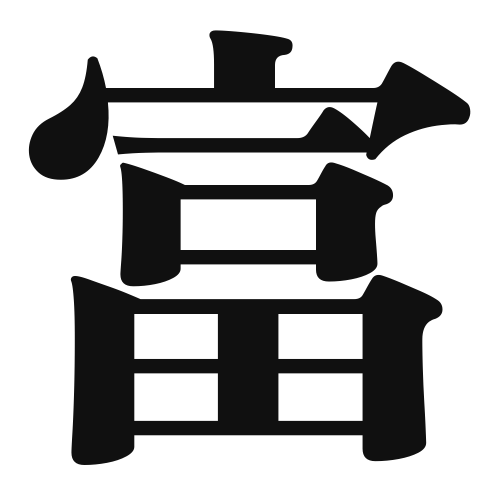1. Overview of Meaning
The kanji 富 (pronounced “fu” or “tomu”) means “wealth” or “riches.” It represents not only material wealth but also abundance and prosperity in various aspects of life.
2. Formation and Radicals
The kanji 富 is a phonetic-ideographic character (形声文字), which combines both meaning and sound. The left part, 宀 (meaning “roof”), suggests a house or dwelling, while the right part, 富 (pronounced “bu”), indicates wealth or abundance.
The radical of 富 is 宀, which is commonly associated with buildings or homes, emphasizing the idea that wealth is often linked to one’s living situation.
3. Examples of Usage
Common words and phrases that include 富 are:
- 富裕 (fuyuu) – affluent, wealthy
- 富士山 (Fujisan) – Mount Fuji, symbolizing beauty and wealth in nature
Example sentence in daily conversation:
「彼はとても富があります。」 (Kare wa totemo fu ga arimasu.) – “He is very wealthy.”
4. Synonyms and Antonyms
Similar kanji with related meanings include:
- 財 (zai) – wealth, assets, which focuses more on financial resources.
- 裕 (yuu) – abundant, which emphasizes richness in a broader sense.
Antonyms include:
- 貧 (hin) – poverty, which represents the opposite of wealth.
5. Cultural and Historical Background
The concept of 富 is deeply rooted in Japanese culture, where wealth is often associated with success and social status. In traditional Japanese society, having a prosperous household was a sign of good fortune.
Proverbs and idioms related to 富 include:
- 富貴は人の心にあり (Fuki wa hito no kokoro ni ari) – “Wealth and nobility reside in the heart of a person,” emphasizing that true wealth is not just material.
